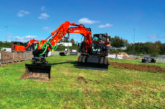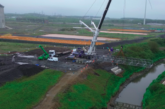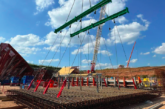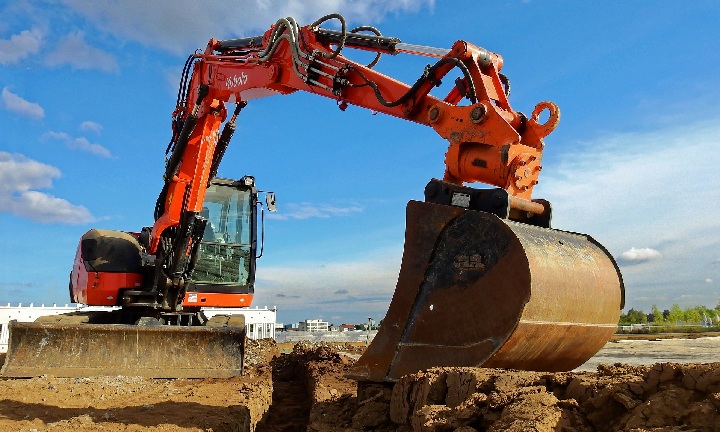
Report reveals that almost half of all UK works put underground assets at risk
According to a new report, 44 per cent of all excavation work in the UK takes place without a thorough underground asset search, putting the UK’s critical utility infrastructure at constant risk of being accidentally damaged.
The report, Digging Up Britain, by LinesearchbeforeUdig (LSBUD), has revealed that despite there being a 27 per cent increase in location-specific searches between 2016 and 2017, only 2.25 million of the estimated 4 million work projects which took place last year included a thorough search for assets such as pipes and cables which might be present underground.
It’s not just the construction sector which is failing to complete thorough searches. In its report, LSBUD, which provides a free to use online asset search facility, also suggests that many utility companies are missing a trick when it comes to protecting their underground assets. While the 72 Members of LSBUD combine to make their assets available as easily as possible, many others don’t, leaving hundreds of thousands of kilometres of the UK’s pipes and cables exposed to a greater risk of strikes.
“Inadvertently hitting an electrical cable or a gas pipeline can cause lifechanging injuries to unfortunate site workers and we all have a duty of care to ensure we protect the safety of those working in our industry as well as the general public. Beyond this, for the asset owner, a strike can result in significant costs both in terms of repair and downtime as well as damage to its brand reputation and customer perception.”
Richard Broome, Managing Director of LSBUD
The Digging Up Britain report highlights that the incidences of electrical cable strikes reported to the HSE almost doubled to 1,244 in 2016/17 while the number of reported pipeline strikes reached 1,264.
Richard Broome adds: “These figures show why it’s so vital that comprehensive utility asset searches become recognised as standard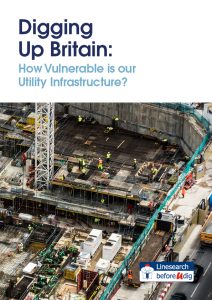 practice when firms are planning and preparing for any works involving digging. Alongside this, all asset owners must protect their infrastructure by doing everything they can to make access to their data easy for those third parties that need it to work safely. It is only by doing both these things that we can manage and reduce the vulnerability of our national utility infrastructure.”
practice when firms are planning and preparing for any works involving digging. Alongside this, all asset owners must protect their infrastructure by doing everything they can to make access to their data easy for those third parties that need it to work safely. It is only by doing both these things that we can manage and reduce the vulnerability of our national utility infrastructure.”
LSBUD’s report reveals that the risk of strikes comes from many fronts. The highest volume of searches by sector came from firms working on behalf of telecoms companies, with just under 800,000 searches made during 2017. Using LSBUD’s data as an indicator of all work being carried out in the UK, it can therefore be said that over a third (35 per cent) of all works being undertaken relate to the telecoms sector.
Water companies and their contractors generated the second highest volume of search enquiries during 2017. The six most prolific regional water suppliers requested details of underground assets on 523,043 occasions – 23 per cent of all searches made last year.
Using LSBUD’s data to build an accurate picture of the UK’s construction activity, the report also shows that 80 per cent of searches carried out were to inform utility work and 13 per cent related to highways works. Government drives to increase housing provision and reduce flooding meant that searches ordered for housing projects rose by 34 per cent in 2017, while there was also a 17 per cent leap in work relating to watercourses.
Richard Broome concluded: “The sheer volume of work taking place across the country means that the risk to our utility infrastructure is coming from all directions and asset owners cannot possibly keep track of all the work going on that might affect their infrastructure.
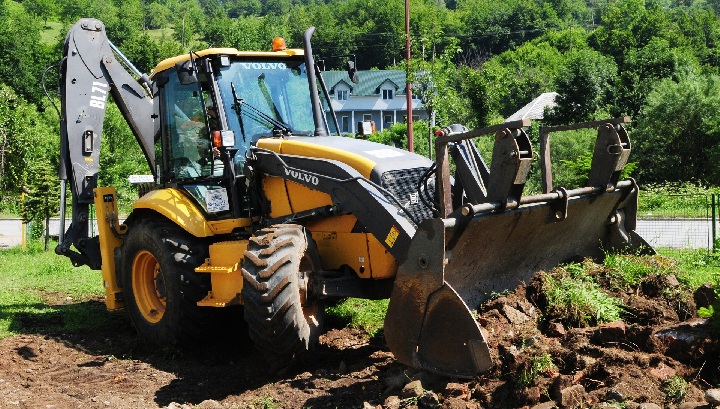
“The most effective way to mitigate this is by ensuring information about asset location is made available to as wide an audience as possible. LSBUD facilitates that and we’re delighted that over 70 asset owners including the National Grid, UK Power Networks, WPD, SGN, Northumbrian Water and the majority of the major electricity, gas and fuel networks are already seeing the benefits of being registered with us. Whilst we’re still some way off reaching our goal of having all asset owners making their information available through us, we believe that the insights revealed by our report will help other asset owners understand the wider benefits of protecting their network of assets through the service.”
To download a copy of the Digging Up Britain report click here




